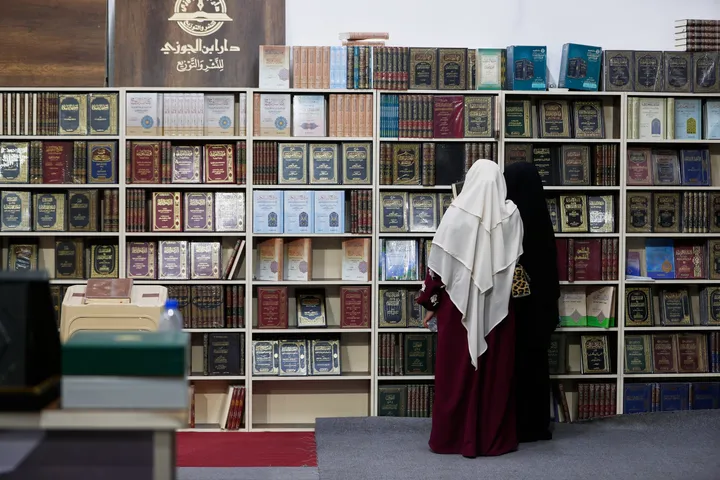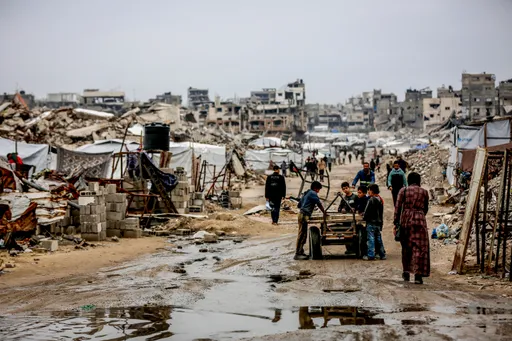Rare earth metals aren’t as rare as the name suggests, but they are fastened to other metals and refining them is a difficult process with complicated technical stages.
Now, the largest stakeholder in that process is China, controlling more than 80 percent of the world’s rare earth production from lithium to silicon metal. That means the world’s biggest economies from the US to the European Union depend primarily on Chinese production to keep their electric cars still running.
But it’s not just about electric cars: solar panels, smart-phones and myriad other technological devices use rare earth metals.
Our increasing reliance on rare earth metals has spurred the EU’s top leaders to rethink their dependence on China as tensions between the West and Beijing escalate.
The latest sign of Western wariness over China’s dominance over rare earth production came with the EU’s Internal Market Commissioner Thierry Breton’s New Year Eve’s statement, which signalled that Brussels aims to enact a law to empower itself with emergency powers to secure its supplies, including rare earth metals.
“It's not about producing everything in Europe, but securing the entire supply chain,” wrote Breton, drawing attention to the fact that the pandemic showed that not only does an adequate supply of vaccines save lives, but also offers “broader lessons on the need for resilient supply chains” in other areas like rare earth metals.
But the EU’s prospective legislation, which is scheduled for spring 2022, might resemble China’s centralised approach to the economy - calling it “the ambitious Single Market Emergency Instrument” which will “identify a toolbox of measures that can be activated to ensure security of supply during a crisis.”
While Breton did not identify those measures, experts think that it might include export controls and powers for Brussels to demand information from companies operating in the EU on their levels of production, stockpiles and supply chains.
Shortages of rare earths
During the pandemic-triggered economic crisis, a shortage of magnesium led to a lot of concerns across Europe as it’s a crucial element in the production of cars, planes and other electronic devices. Most European producers import magnesium from China and this year Beijing was running short.
Rare earth metals are also crucial in producing magnesium alloys, which increase strength at elevated temperatures, and to develop new batteries for electric cars.
“We import lithium for electric cars, platinum to produce clean hydrogen, silicon metal for solar panels,” said European Commission President Ursula von der Leyen, at the Industry Days 2021 event early this year, referring to the increasing importance of rare earth elements.
“Ninety-eight per cent of the rare earth elements we need come from a single supplier: China. This is not sustainable. So we must diversify our supply chains,” she warned.
Von de Leyen’s emphasis was repeated by Breton, who did not name China as a direct problem in his letter. “The acute supply shortages experienced during the crisis exacerbated underlying, structural dependencies regarding products, services and technologies,” Breton wrote.
“Some of them are needed in basic industrial applications (e.g. magnesium for steelmaking, wood for construction, chemicals for dyes), others are vital for the digital and green transition (e.g. lithium, rare earths),” Breton noted.
Does Europe have alternatives?
While EU leaders complain about a reliance on rare earths, it can’t be changed overnight because China is the biggest producer of rare earths across the globe.
While China has nearly 37 percent of the world’s total rare earth reserves, its companies also operate across the world, particularly in countries like Myanmar, which provides half of China’s heavy rare earths exports, according to experts.
Since the 1980s, China has deliberately invested in its rare earths sector, recognising how these 17 elements listed on the periodic table of chemistry can change the face of modern technology.
"The Middle East has oil; we have rare earths ... it is of extremely important strategic significance; we must be sure to handle the rare earth issue properly and make the fullest use of our country's advantage in rare earth resources," said Deng Xiaoping, the former top leader of the Chinese Communist Party from 1978 to 1989.
Unlike China, Europe does not have significant rare earth reserves. But the EU leaders might seek alternative rare earth sources from countries like Australia, Brazil, Canada, South Africa, Tanzania, Greenland, and the United States.
But the problem is most mines in these countries have been closed due to both China’s entrance into the global rare earths markets in the 1990s with low prices and fewer environmental concerns. Those countries may restart their production, but it will definitely take years to catch China’s level of rare earths production.























